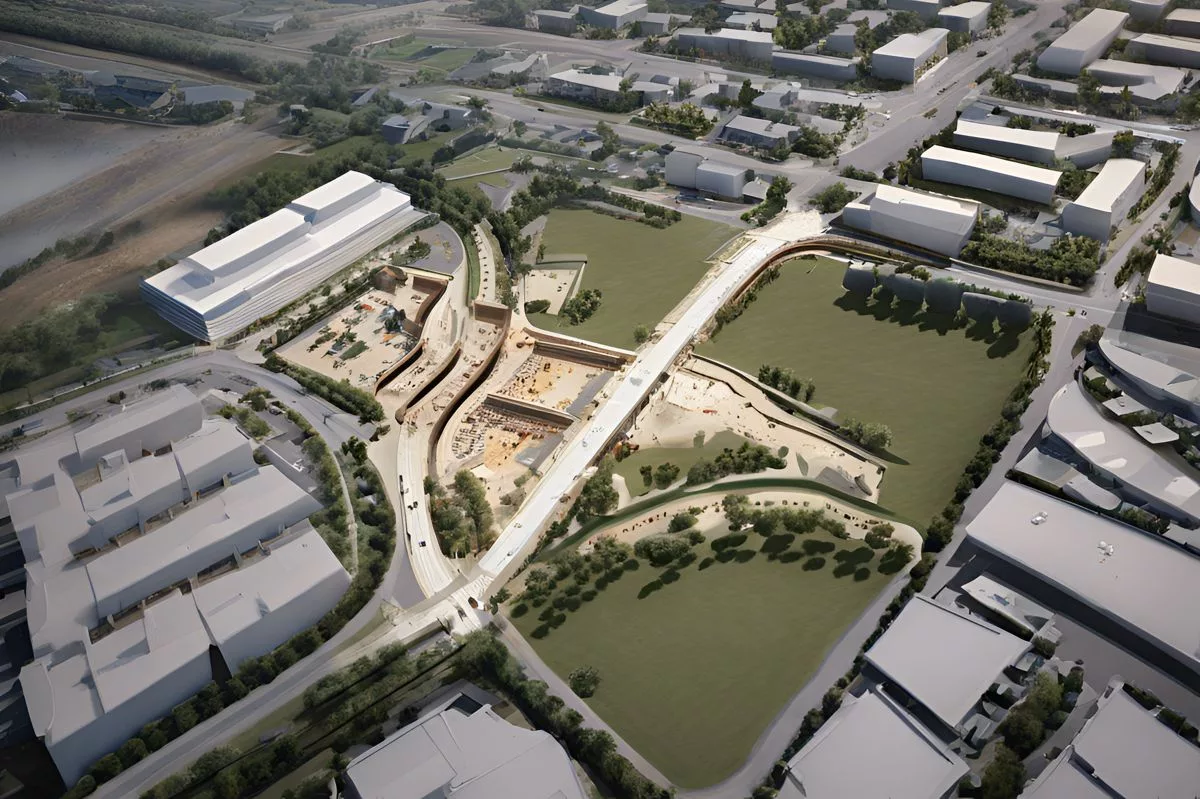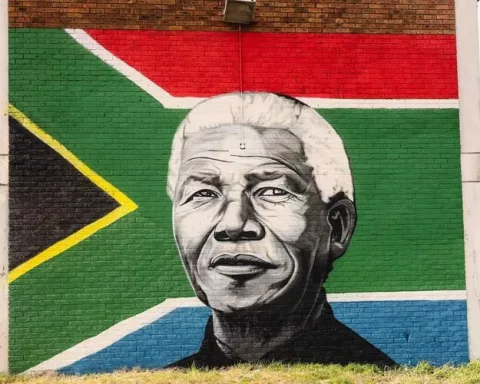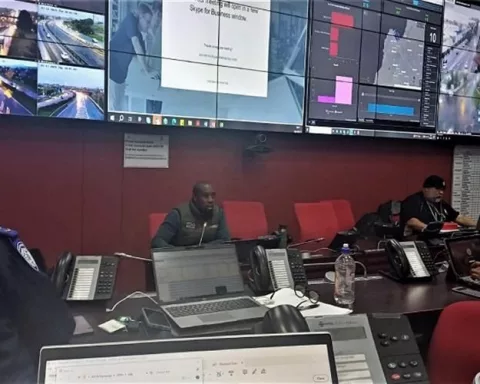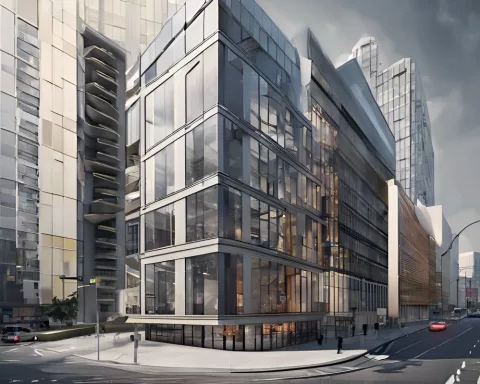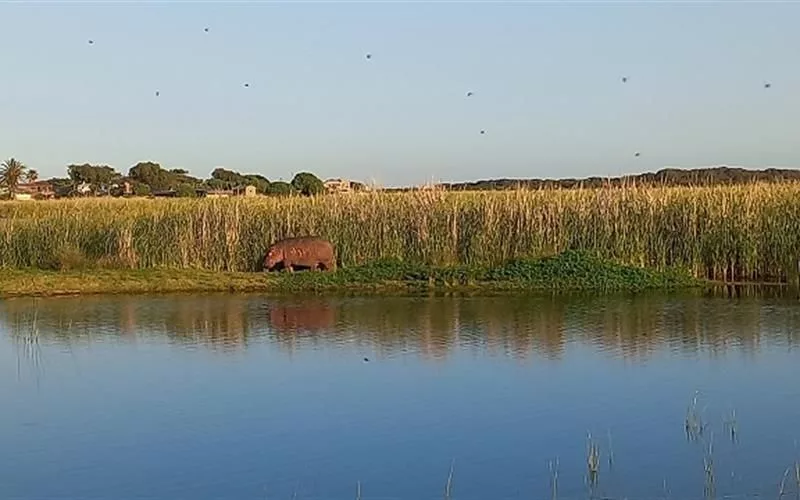The Western Cape High Court has approved the construction of a new road connecting Masiphumelele to the wider Noordhoek area, which will provide better access to essential amenities and emergency services, reduce traffic volumes, and counteract flooding risks. The road project, which had been delayed for almost eight years, is expected to bring relief to the community and enhance mobility and self-determination. While there were environmental concerns, the City has committed to mitigating any harmful impacts on wetlands and leopard toads, and the project is seen as a beacon of hope for a brighter future.
A Significant Milestone: Western Cape High Court Greenlights New Road Construction for Masiphumelele
The Western Cape High Court has approved the construction of a new road connecting Masiphumelele to the wider Noordhoek area. The Houmoed Avenue extension project aims to enhance access to employment, education, and other crucial amenities. It also provides an extra route for emergency services and counteracts the risk of flooding. The road is expected to alleviate traffic volumes along Kommetjie Road and bridge gaps between communities.
A Beacon of Hope: The Bridge of Opportunity
In an unforeseen but gratifying move, the Western Cape High Court ushers in a new chapter for Masiphumelele, a township tucked away in the far south of Cape Town. The court has given the green light for the construction of a new road, intended to connect Masiphumelele directly to the wider Noordhoek area. More than just a physical passage, this road symbolizes a channel of opportunity, a lifeline to employment, education, and other crucial amenities that were previously a challenge to reach.
City authorities first conceived the plan for the Houmoed Avenue extension in 2017. The aim was an ambitious one: to bestow upon Masiphumelele’s inhabitants a heightened sense of mobility and self-determination. The goal was to carve a route to Noordhoek Village and its surroundings, ensuring that emergency services, such as police, fire, and ambulance, could reach the township swiftly. Regrettably, the Noordhoek Environmental Action Group put a damper on the project by contesting the environmental approvals granted by the Western Cape Minister of Local Government, Environmental Affairs, and Development Planning. This legal feud caused an almost eight-year postponement.
With the court’s verdict now in, a renewed wave of optimism washes over Masiphumelele. The Mayoral Committee Member for Urban Mobility, Councillor Rob Quintas, has greeted this decision with palpable relief and enthusiasm. He stated, “At last, we have a verdict that will allow us to move forward with a project we believe will bring significant relief to the Masiphumelele community in the form of enhanced access and savings in travel costs and commuting time.”
The Blueprint: Details of the Proposed Road Project
The proposed project involves extending Houmoed Avenue from the intersection with Buller Louw Boulevard to Lekkerwater Road in Sunnydale, and from Lekkerwater Road to Fish Eagle Park in Masiphumelele. This will not only simplify the community’s travel to work, school, shops and other places but also counteract the risk of flooding in parts of Masiphumelele by installing a drainage system to divert rainwater runoff into stormwater channels. Another key advantage is the extra access route for emergency services.
However, this project is not devoid of environmental issues. Wetlands within the proposed road reserve required an environmental impact assessment (EIA) under the National Environmental Management Act. The assessment comprised a thorough examination of the wetlands area and ecosystem, the potential influence of the road extension on local fauna, flora, and the environment, and a proposal for an environmental management program to address these issues and restore the wetland to its original condition.
Reassuring the Noordhoek Environmental Action Group and environmental enthusiasts, the City has committed to take utmost care to mitigate any harmful impacts on the wetlands and the leopard toads that call this area home. Councillor Quintas pledged, “We will do everything within our power to reduce any impact on the wetlands within the road reserve and the leopard toads,” urging the environmental group to respect the court’s ruling.
A New Era: Projected Impact and Future Prospects
The new road is expected to alleviate the current traffic volumes along Kommetjie Road (M65), the existing main conduit connecting Kommetjie, Ocean View, Masiphumelele, Capri, Noordhoek, Fish Hoek, and beyond. The extension of Houmoed Avenue promises a much-needed alternate route for the residents of Masiphumelele, Sunnydale, and Capri.
With the legal obstacles conquered and the community’s anticipation heightening, the City is preparing to roll out this transformative project. This road will bridge geographical gaps, intertwining communities, and fostering a shared vision of progress. It stands as a symbol of a brighter future, where the gap between opportunity and those who need it most is no longer an obstacle, but a readily passable route.
What is the new road project for Masiphumelele?
The Western Cape High Court has approved the construction of a new road connecting Masiphumelele to the wider Noordhoek area, which will provide better access to essential amenities and emergency services, reduce traffic volumes, and counteract flooding risks.
What are the benefits of the new road project for Masiphumelele?
The new road project aims to enhance access to employment, education, and other crucial amenities. It also provides an extra route for emergency services and counteracts the risk of flooding. The road is expected to alleviate traffic volumes along Kommetjie Road and bridge gaps between communities.
What is the proposed plan for the new road project?
The proposed project involves extending Houmoed Avenue from the intersection with Buller Louw Boulevard to Lekkerwater Road in Sunnydale, and from Lekkerwater Road to Fish Eagle Park in Masiphumelele. This will not only simplify the community’s travel to work, school, shops and other places but also counteract the risk of flooding in parts of Masiphumelele by installing a drainage system to divert rainwater runoff into stormwater channels.
What are the environmental concerns related to the new road project?
Wetlands within the proposed road reserve required an environmental impact assessment (EIA) under the National Environmental Management Act. The City has committed to take utmost care to mitigate any harmful impacts on the wetlands and the leopard toads that call this area home.
What is the impact of the new road project on the community?
The new road is expected to bring relief to the community and enhance mobility and self-determination. The road project, which had been delayed for almost eight years, is seen as a beacon of hope for a brighter future.
When will the new road project be rolled out?
With the legal obstacles conquered and the community’s anticipation heightening, the City is preparing to roll out this transformative project. However, no specific timeline has been provided yet.

